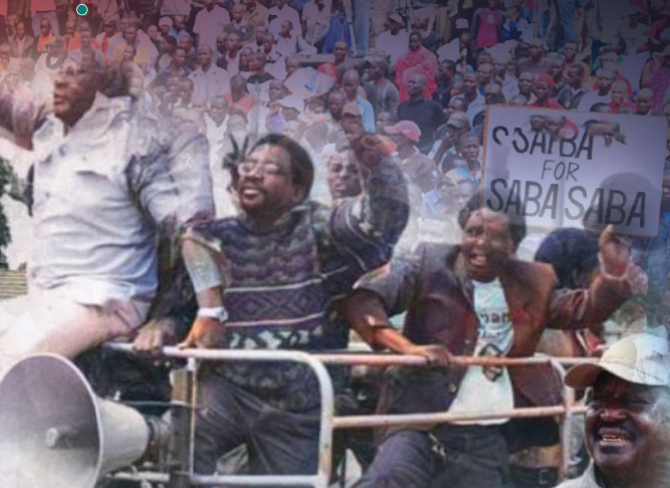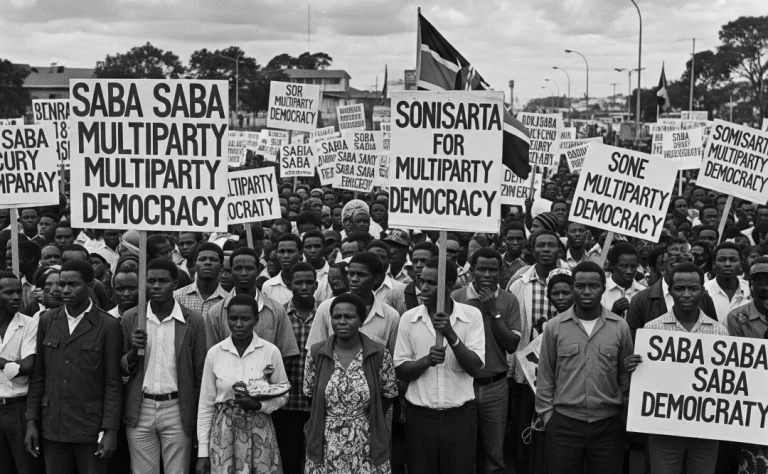Today, 7th July, marks Saba Saba Day in Kenya, a pivotal date in the nation’s struggle for democracy and human rights. “Saba Saba,” which means “Seven Seven” in Swahili, commemorates the nationwide pro-democracy demonstrations held on 7th July 1990.
The Birth of a Movement: 1990
In 1990, Kenya was under the authoritarian rule of President Daniel arap Moi and the single-party system of the Kenya African National Union (KANU).
Political dissent was heavily suppressed, and there was growing discontent over economic mismanagement and exclusion.
On 6th June 1990, prominent opposition leaders, including Kenneth Matiba, Charles Rubia, and Jaramogi Oginga Odinga, bravely called for a public rally at Kamukunji Grounds in Nairobi on 7th July.
Their demand was clear: a return to multiparty democracy. Despite the government banning the rally and arresting Matiba and Rubia just days before, protesters defied the prohibition, leading to widespread unrest across the country.
Riot police responded with brutal force, using batons, tear gas, and live ammunition. The ensuing clashes lasted for four days, reportedly resulting in over 20 deaths, numerous injuries, and more than 1,000 arrests.
Other key figures involved in the 1990 protests included Raila Odinga, James Orengo, Gitobu Imanyara, Gibson Kamau Kuria, Koigi wa Wamwere, and Wangari Maathai.

The Saba Saba protests were a critical turning point. Although the immediate goal of multipartyism wasn’t achieved that day, the sheer defiance and public pressure compelled Moi’s government to eventually repeal Section 2A of the Constitution in 1991, paving the way for multiparty elections in 1992.
Enduring Legacy and Modern Significance
Over the decades, Saba Saba Day has evolved into a powerful tradition symbolising the ongoing struggle for civil liberties, human rights, and good governance in Kenya.
While the country transitioned to a multiparty system, many of the issues that sparked the 1990 protests, such as economic hardship, corruption, and police brutality, continue to resonate.
Each year, Kenyans observe Saba Saba to reflect on past sacrifices and demand accountability from leadership. The day often sees various groups, including civil society organisations, human rights defenders, and political opposition figures like Raila Odinga, holding rallies, marches, or vigils.
For many, it’s a reminder that the fight for a truly just and democratic society is a continuous journey.
What does Saba Saba Day mean to you?
By Geoffrey mbuthia


